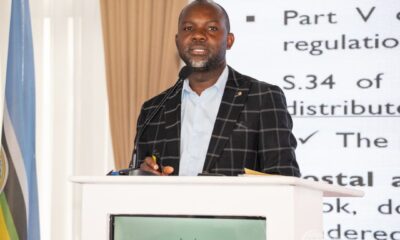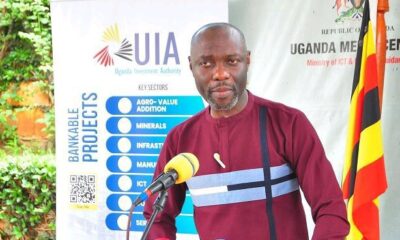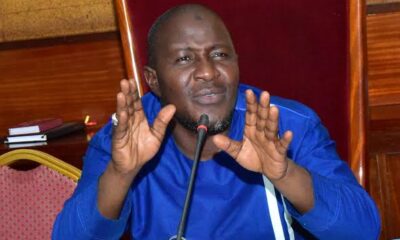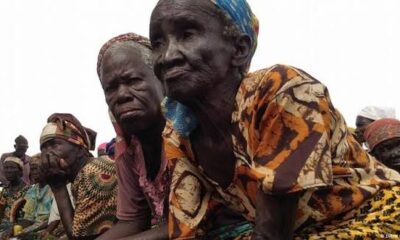Politics
The Most Scaring Abductions Of NUP Supporters!! Are They Dead Or Alive?
On June 3, 2019, John-Bosco Kibalama, a trained accountant who was an acolyte of National Unity Platform (NUP) leader, Robert Kyagulanyi Sentamu alias Bobi Wine, went missing. The details of his abduction remain vague after his car was found abandoned on Kampala-Gayaza Road by police officers.
He is among scores of NUP supporters who may either be held incommunicado in ungazetted detention facilities or may be dead, as some relatives fear.These disappearances were the subject of a recent probe by the Uganda Human Rights Commission (UHRC) whose chairperson, Mariam Wangadya, on October 10 revealed that files of 18 missing persons had been closed.
“It will be futile for us to keep these files open when the people provided to us as the next of kin […] are not interested in these cases,” Ms Wangadya said.
In a riposte during a news conference held on October 12, Monica Nabukeera, Kibalama’s wife, disclosed that she has “never received any letter or phone call or message requesting me to respond to the issues concerning my husband’s disappearance”.Ms Nabukeera also revealed that they have visited several detention centres and “have even been conned several times in the hope of finding him”.
Before his disappearance, Kibalama was vying for the Busiro North Parliamentary race. A NUP bastion, Kibalama was widely expected to give the incumbent, Dennis Ssozi Galabuzi, the junior Luweero minister then, a run for his money.
In February, Prime Minister Robinah Nabbanja courted controversy when she revealed that Kibalama—whom she described as “a hard-core criminal”—was detained in 2022 for allegedly killing police officers. Red flags immediately shot up. How could a man who was abducted in 2019 be responsible for a crime committed in 2022? Did he escape from detention?
“What was important to us was that we needed Kibalama to be arraigned in court so that he could be tried for the criminal offence he was being held for. I later on engaged the prime minister […] and she did not seem bothered and communication broke down,” the wife revealed.
Nabbanja standoff
Rancour filled the air inside the cloistered hall of Parliament during the plenary recently when the Leader of Opposition, Mathias Mpuuga said, “I asked the prime minister that I escort her to go see Kibalama and she needs 30 days? I put it to her that the blood of Kibalama is on your hands.”
Nabbanja sprang towards the dispatch box to defend herself. “Is it in order for my brother to keep insinuating that I have the blood of Kibalama when I am not a security person,” She Retorted.
Many of these contradictions and denials fly in the face of UHRC ability to undertake a legitimate probe of the missing. Joel Ssenyonyi, the spokesperson for NUP, says Prime Minister Nabbanja should be treated as a “witness”.
The Nakawa West lawmaker said: “Why doesn’t Wangadya reach out to Nabbanja and say, ‘you made this statement, where is this person’?”Curiously, though, in its report on the missing NUP supporters, the Commission recommended that the House Committee on Human Rights, which conducted a parallel probe, publish its report.
“If the people have no trust in us the civilian authority, maybe they have more confidence in an institution where they elect people to represent them, that is Parliament,” Mr Bukumunhe said, adding, “That institution also carried out investigations into this matter and we are dismayed that the report has not been made public.”
Ambiguous loss
Per UHRC’s findings, there are 18 missing people, including John Bosco Kibalama, Vincent Nalumonso, John Ddamulira, Martin Lukwago, Godfrey Kisembo and Hassan Mubiru.Such families of missing persons are dealing with what psychologists term as “ambiguous loss”.
Unable to grieve because there are no remains for which to mourn and bury, those whose loved ones are missing also can’t entirely give up hope of being reunited with the missing. It is this unsettling equilibrium they develop.Under the Estates of Missing Persons (Management) Act Cap 159, a missing person is a person who disappears from Uganda without making provision for the administration of their estate and investigations have shown that their whereabouts are unknown.
According to Section 20 of the Act, after a period of three years, such a person is presumed dead.
Back to the future?
Four months after seizing power in 1986, President Museveni’s National Resistance Army (NRA) government established a Commission of Inquiry to look into the cycle of violence that plagued the country since the post-colonial era.
The Commission’s final report titled “Pearl of Blood” delivered in October 1994 detailed grim tales by survivors or their families and macabre accounts by some of the actors in the armies of Obote and Amin 1962 to 1970, 1971 to 1979, and 1980 to July 1985, respectively.
“The exact number of Ugandans that have lost their lives at the hands of government agents and agencies since independence, is impossible to establish,” it read in part, adding, “The murder of individuals, mass murders, and arbitrary deprivation of life or extra judicial executions is a violation of the right to life, one of the most fundamental rights and freedoms of an individual.”
For instance, under Amin the army and security outfits that operated through loose command structures wielded immense powers.




























